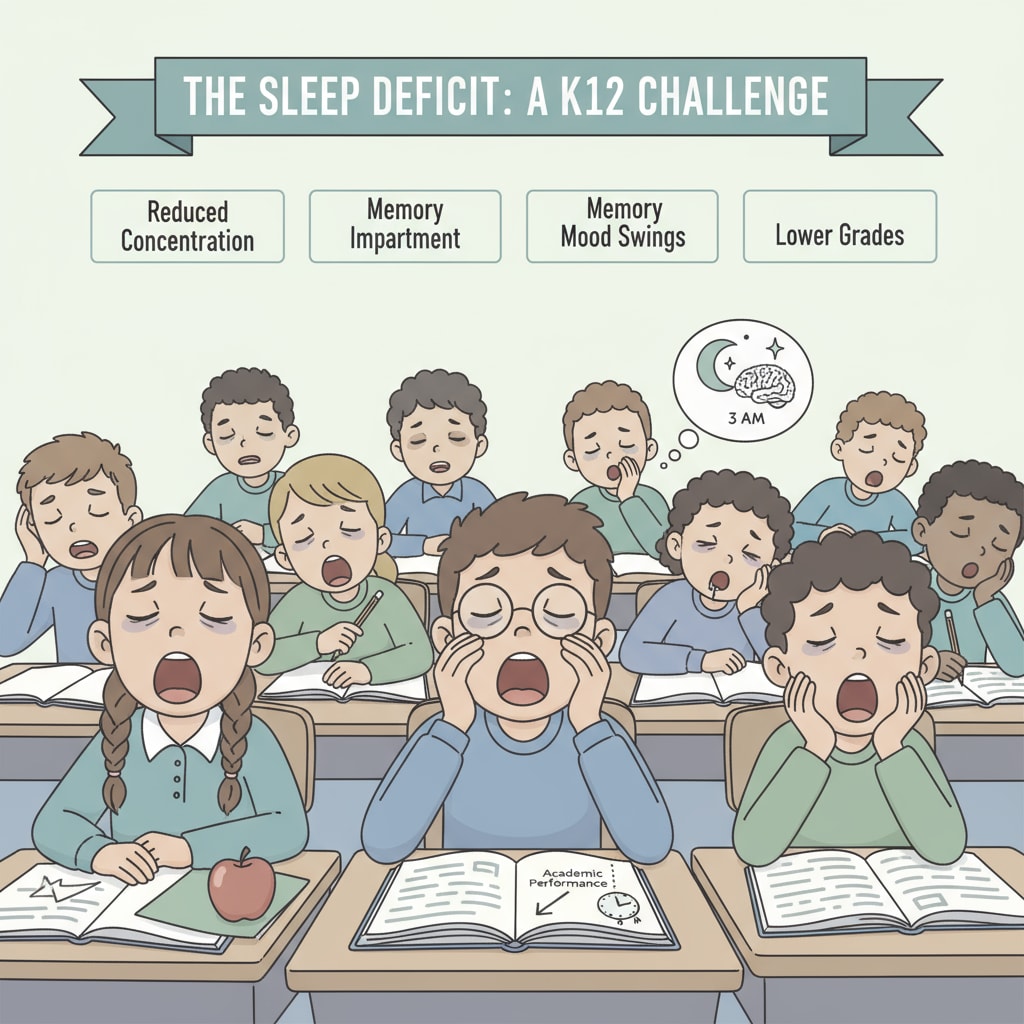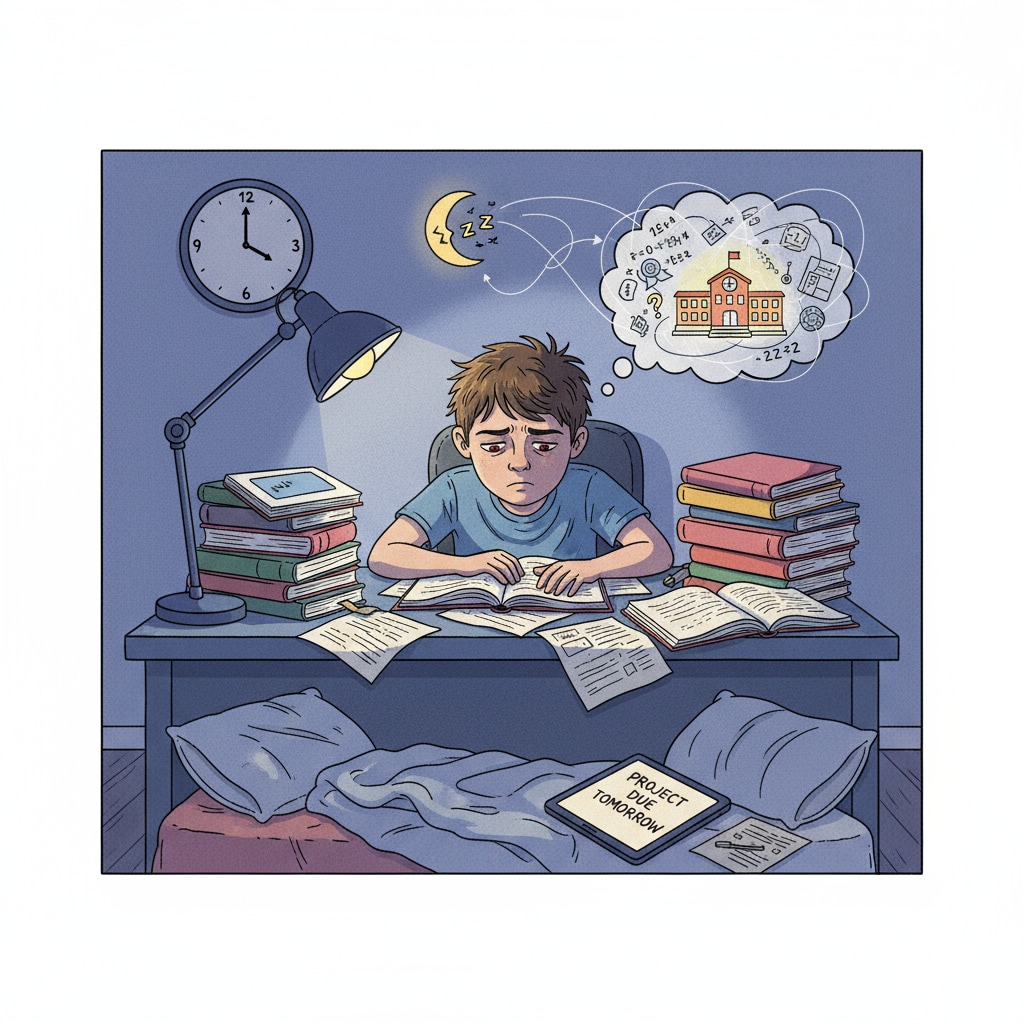In today’s high-pressure K12 education system, sleep, mental health, and school stress are intertwined in a complex web. Students are often burdened with heavy workloads, numerous exams, and high expectations, leaving them with little time for proper rest. However, sleep is not just a luxury; it is a fundamental necessity for maintaining good mental health and effectively coping with school stress.

The Link Between Sleep and Mental Health
Sleep plays a vital role in our mental well-being. During sleep, the brain goes through a series of processes that are essential for emotional regulation, memory consolidation, and cognitive function. According to The Sleep Foundation, lack of sleep can lead to increased levels of stress, anxiety, and depression. For K12 students, this can have a significant impact on their ability to focus in class, learn effectively, and interact with their peers.
The Impact of School Stress on Sleep
The pressure to perform well academically, participate in extracurricular activities, and fit in socially can take a toll on students’ sleep. Many K12 students stay up late to finish assignments, study for exams, or engage in social media, sacrificing their sleep in the process. This can create a vicious cycle, as lack of sleep further exacerbates stress levels, making it even more difficult for students to cope with the demands of school. As stated by the American Psychological Association, stress can disrupt sleep patterns, leading to insomnia and other sleep disorders.

In addition to academic stress, social stress can also impact students’ sleep. Bullying, peer pressure, and relationship issues can cause feelings of anxiety and worry, making it hard for students to fall asleep or stay asleep. It is essential for parents, teachers, and school administrators to recognize the signs of stress and sleep problems in students and take appropriate measures to address them.
Readability guidance: As we can see, the relationship between sleep, mental health, and school stress is complex. By understanding these connections, we can take steps to help K12 students prioritize sleep and improve their overall well-being. In the following sections, we will explore some practical strategies for promoting healthy sleep habits among students.


